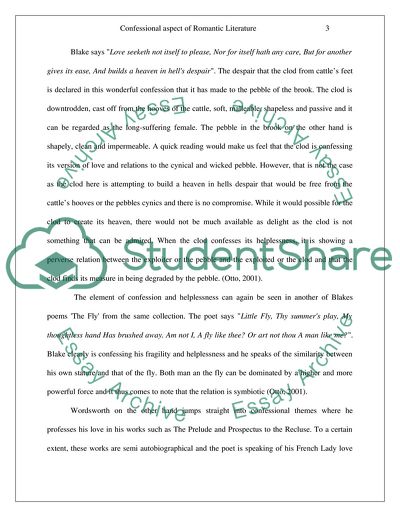Cite this document
(“The Confessional Aspect of Romantic Literature Essay”, n.d.)
The Confessional Aspect of Romantic Literature Essay. Retrieved from https://studentshare.org/literature/1725353-discuss-the-confessional-aspect-of-romantic-literature
The Confessional Aspect of Romantic Literature Essay. Retrieved from https://studentshare.org/literature/1725353-discuss-the-confessional-aspect-of-romantic-literature
(The Confessional Aspect of Romantic Literature Essay)
The Confessional Aspect of Romantic Literature Essay. https://studentshare.org/literature/1725353-discuss-the-confessional-aspect-of-romantic-literature.
The Confessional Aspect of Romantic Literature Essay. https://studentshare.org/literature/1725353-discuss-the-confessional-aspect-of-romantic-literature.
“The Confessional Aspect of Romantic Literature Essay”, n.d. https://studentshare.org/literature/1725353-discuss-the-confessional-aspect-of-romantic-literature.


